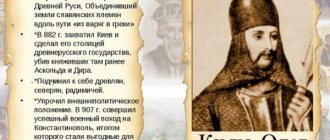Personal life
In July 1877 Tchaikovsky married conservatory student Antonina Milyukova. Actually, it was rather “taken by storm”: the lover, 8 years younger, bombarded the composer with letters; threatening to commit suicide, she furiously sought meetings. Pyotr Ilyich gave up, and already two weeks before marriage he was ready to commit suicide - this married life turned out to be so unbearable. In October, Tchaikovsky decides to leave.
He also stops working at the Moscow Conservatory and goes to Switzerland with his brother Anatoly. The trip was made possible thanks to the patronage of Nadezhda von Meck.
Nadezhda von Meck - a strange novel by a great composer
It is worth mentioning separately about this woman and her role in the life of the great composer. At the age of 16, the daughter of a landowner, Nadezhda Frolovskaya, married a talented engineer, a descendant of an old German noble family, Karl von Meck, who was one of the first in the Russian Empire to design and build railways. 1868 The von Meck family acquired the estate of magnate Pototsky in the town of Brailov (now Vinnitsa region). And in 1876 Karl von Meck died. Nadezhda Filaretovna and her children (in total, 18 of them were born to the von Mecks, 11 lived to adulthood) received a large inheritance.
And so in 1877 Professor of the Moscow Conservatory P.I. Tchaikovsky received a letter from an unfamiliar woman. She announced her intention to send him 6 thousand rubles every year (very significant funds at that time!) so that he could create without being distracted by material problems. Correspondence began between the composer and Mrs. von Meck. Tchaikovsky talked about his plans, about working on the opera “Eugene Onegin” and suffering due to an unsuccessful marriage.
Nadezhda Filaretovna supported the composer in every possible way, and thanks to this support, inspiration and peace of mind returned to him. Nadezhda more than once emphasized in her letters that Tchaikovsky’s music is of great importance for her spiritual life. And he dedicated the Fourth Symphony to Nadezhda von Meck, but at her request he did not mention his last name. “Dedicated to a friend,” they both knew who they were talking about.
Over the course of 13 years of friendship, they wrote more than 1,100 letters to each other. And... we never saw each other - such was the will of Filaretovna’s hope. When Tchaikovsky visited the von Meck estate, she was never there.
Fragments of letters from Tchaikovsky and Nadezhda von Meck
The end of a platonic romance
The correspondence ended suddenly: in September 1890, Tchaikovsky received the last letter from the Baroness. Not a single reproach, not a single hint that the woman had stopped loving the composer. Somehow, even casually, Nadezhda Filaretovna informed Pyotr Ilyich about her financial difficulties and refused to continue to support him. This caused the maestro severe depression. And the reason for such an unexpected outcome of their tender feelings was simple. A wealthy patron is tired of looking for the love of a famous composer. She heard rumors about Tchaikovsky's unconventional sexual orientation. In addition, their own children demanded to stop throwing away family money. So, the “novel in letters” ended in nothing.
Three years later, the news of the composer's death will strike the Baroness. On November 6, 1893, the woman learned that the man to whom she had given the best years of her stormy life was no longer in the world. Tchaikovsky was taken away forever by the cholera epidemic. Nadezhda von Meck did not survive this terrible loss for her. She constantly suffered from insomnia and nostalgia, and at night she listened to the divine music of her “beloved”. Three months later, on January 26, 1894, the baroness died in Nice
“He was no longer an official, he was a musician”
Yan Tsionglinsky. Portrait of Pyotr Tchaikovsky (fragment). 1894. Smolensk State Museum-Reserve, Smolensk
Daniil Chashechkin. Portrait of Pyotr Tchaikovsky (fragment). 2015. Private collection
Alexander Khristinenko. Portrait of Pyotr Tchaikovsky (fragment). 1999. Private collection
In 1859, Tchaikovsky graduated from the Imperial School of Law. His certificate showed excellent grades in almost all subjects, and the future composer was hired by the Ministry of Justice. He continued to communicate with his fellow students at the school, among whom were many representatives of high society. Tchaikovsky visited their salons and musical evenings.
In 1861, Ilya Tchaikovsky’s friend Vasily Pisarev invited the future composer to travel with him to Europe as a secretary and translator. This trip was Tchaikovsky’s first, but later he wrote to his sister: “If I have done some colossal stupidity in my life, then this is my trip. Do you remember Pisarev? Until now I had no idea that there were such fabulously vile individuals in the world; Now it’s not difficult for you to understand what it was like for me to spend three months inseparable from such a pleasant companion.” During his travels, the composer visited Germany, France and the UK.
At home, Tchaikovsky returned to work in the Ministry of Justice. He was not promoted in the service, although the composer’s brother Modest Tchaikovsky recalled: “He not only worked hard at Malaya Sadovaya, but brought work home and wrote reports at night.” On the advice of his father, Tchaikovsky combined work and music studies. From September 1861, he attended classes with Anton Rubinstein at the Russian Musical Society (RMS), and in 1862 he became one of the first students at the newly opened St. Petersburg Conservatory. Tchaikovsky had no success in his service at this time. The position of official of special assignments, which the composer was counting on, went to another ministry employee, and in 1863 he quit and concentrated on creativity.
“Now he was no longer an official, he was a musician: his dismissal from a regular position in the Ministry of Justice happened unnoticed - he simply stopped going to the department. By the beginning of the second year, he had fifty rubles a month worth of lessons. His father's financial affairs were getting worse and Tchaikovsky could not hope for his help. Sometimes he had to run on foot from Kolomna to Okhta, his smart frock coats were worn out; some of his former acquaintances on Nevsky stopped recognizing him, perhaps intentionally, but, however, probably sincerely: he grew his hair long and wore a wide-brimmed hat.”
Nina Berberova, Tchaikovsky
Pyotr Tchaikovsky, Thunderstorm Overture
Many relatives did not accept Tchaikovsky's decision. The composer, his father and younger brothers had to move to a cheaper apartment and save on clothes. Tchaikovsky wrote to his sister: “Don’t think that I imagine becoming a great artist, I just want to do what my vocation leads me to; whether I be a famous composer or a poor teacher, my conscience will be calm.” At the conservatory, he was one of the best students: together with another student of the institution, Herman Laroche, he played Mikhail Glinka’s opera “A Life for the Tsar” with four hands, composed his first works - the overture “The Thunderstorm” based on the play by Alexander Ostrovsky, a cantata based on Friedrich Schiller’s ode “To joy", the play "Characteristic Dance".
Laroche wrote to Tchaikovsky: “You are the greatest musical talent of modern Russia. I see in you the greatest, or better yet, the only hope for our musical future.” The composer graduated from the conservatory in 1865 with the highest award - a large silver medal and the title of “free artist”.
Childhood
Pyotr Ilyich Tchaikovsky was born in the village of Votkinsk, Vyatka province (Udmurtia) in 1840. He grew up in a large family of an engineer: besides him there were three more children - two brothers and one sister. The boy's parents were fond of music; they knew how to play the flute and piano. So little Tchaikovsky fell in love with the melodic sound of musical instruments from early childhood. At the age of 5, the boy had already mastered the piano, and after another 2 years he played notes. In 1850 the whole family moved to St. Petersburg. In 1854, the mother of the future composer died of cholera. The children were left in the care of their father, who also fell ill but managed to recover.
Painting by artist A. Parkhomenko “Petya Tchaikovsky”.
Moscow period
1866 P. Tchaikovsky was invited to Moscow (at the invitation of Nikolai Rubinstein) to teach composition, music theory and harmony at the conservatory. .
Pyotr Ilyich found himself in the whirlpool of cultural life of the “second capital” of the empire. I met L. Tolstoy, A. Ostrovsky, and the composers of the “Mighty Handful” (A. Borodin, M. Rimsky-Korsakov, M. Mussorgsky, Ts. Cui, M. Balakirev). At the same time he wrote the fantasy overture “Romeo and Juliet” and the First Symphony.
The 1870s were extremely fruitful for the composer:
- Operas “Oprichnik” and “Blacksmith Vakula” (later – “Shoes” (“Cherevichki”), libretto based on N. Gogol’s story “The Night Before Christmas”);
- music for A. Ostrovsky's play “The Snow Maiden”;
- Swan Lake ballet";
- Concerto for piano and orchestra No. 1;
- Second and third symphonies; fantasy "Francesca da Rimini";
- three string quartets
The above is only a part of the works written by Tchaikovsky during this inspired creative period.
1876 Peter and his brother Modest visited Paris. The opera “Carmen” by J. Bizet, which triumphantly performed on the stage of the Grand Opera for about a year, made an extraordinary impression on the composer. On the way home we stopped in Bayreuth for the Wagner Festival, where we met Richard Wagner himself and Franz Liszt.
Brother of Pyotr Tchaikovsky - Modest








